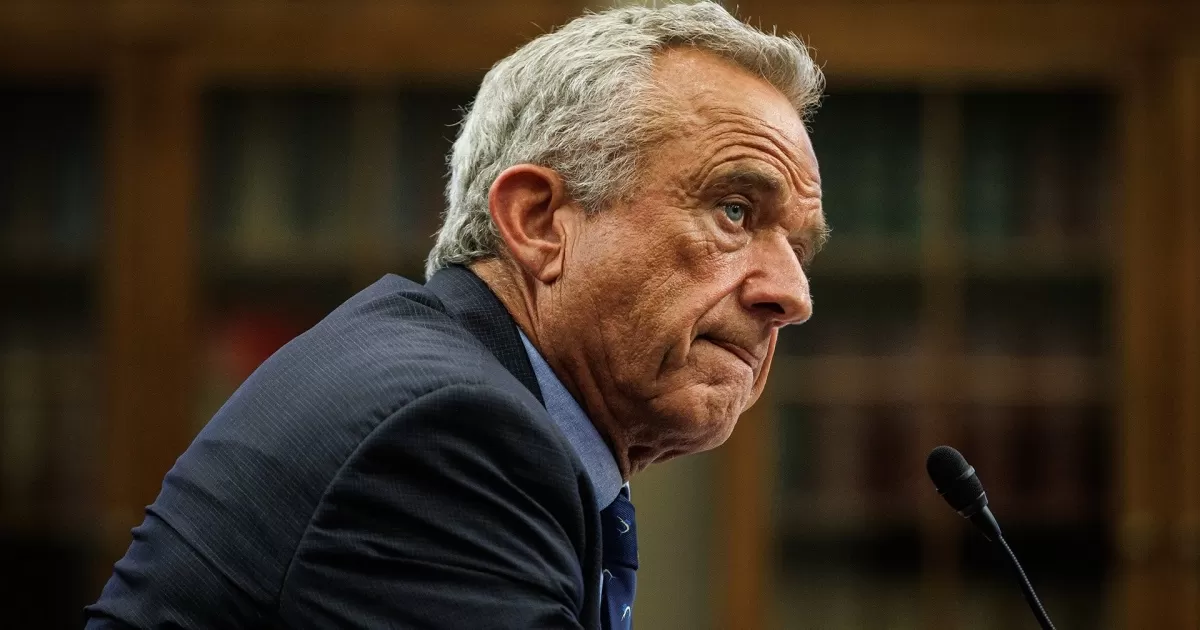Robert F. Kennedy Jr.'s Fiery Capitol Hill Showdown: Unpacking the Grilling
Share- Nishadil
- September 06, 2025
- 0 Comments
- 2 minutes read
- 44 Views

RFK Jr. Faces Intense Scrutiny on Capitol Hill in Fiery Hearing
Presidential candidate Robert F. Kennedy Jr. recently faced a rigorous questioning session on Capitol Hill, delving into his controversial views and past statements during a contentious hearing.
The hallowed halls of Capitol Hill recently played host to a political firestorm as independent presidential candidate Robert F. Kennedy Jr. underwent an intense grilling by lawmakers. Invited to testify before a House subcommittee hearing ostensibly on government censorship and free speech, Kennedy found himself under a harsh spotlight, as members of both parties dissected his past controversial statements and challenged the very nature of his public discourse.
The atmosphere was charged from the outset, with representatives wasting no time in pressing Kennedy on a litany of contentious remarks.
Central to the interrogation were his long-standing skeptical views on vaccines, which have drawn widespread criticism from public health experts. Lawmakers probed the scientific basis of his claims, pushing back against what many perceive as the spread of misinformation that could undermine public trust in health institutions.
Beyond health policies, Kennedy's testimony veered into deeply sensitive territory.
He faced pointed questions regarding remarks that have been widely condemned as antisemitic, particularly his comments linking COVID-19 to race-specific targeting. The questioning aimed to highlight the potential harm and divisive nature of such statements, irrespective of his intentions, placing significant pressure on him to clarify or retract.
Kennedy, for his part, largely maintained his positions, often seeking to contextualize his statements or arguing that he was being unfairly censored or misunderstood.
He asserted his right to free speech and expressed concern over what he views as government suppression of dissenting voices. However, his defenses did little to quell the skepticism of many on the committee, who emphasized the responsibility that comes with a public platform, especially for a presidential aspirant.
The hearing underscored the deep partisan and ideological divides currently gripping American politics.
While some Republicans appeared to support Kennedy's stance against perceived government overreach and censorship, many Democrats expressed outrage, viewing his appearance as an endorsement of harmful rhetoric and a platform for disinformation. The debate quickly evolved from a discussion of free speech principles to a direct examination of the veracity and impact of Kennedy's claims.
Ultimately, Kennedy's Capitol Hill appearance served as a stark preview of the intense scrutiny he can expect on the campaign trail.
The "grilling" brought into sharp focus the controversies that define his public image and the challenges he faces in convincing a broad electorate of his fitness for office, all while navigating the complex interplay between free speech, factual accuracy, and public accountability in a polarized nation.
.Disclaimer: This article was generated in part using artificial intelligence and may contain errors or omissions. The content is provided for informational purposes only and does not constitute professional advice. We makes no representations or warranties regarding its accuracy, completeness, or reliability. Readers are advised to verify the information independently before relying on







